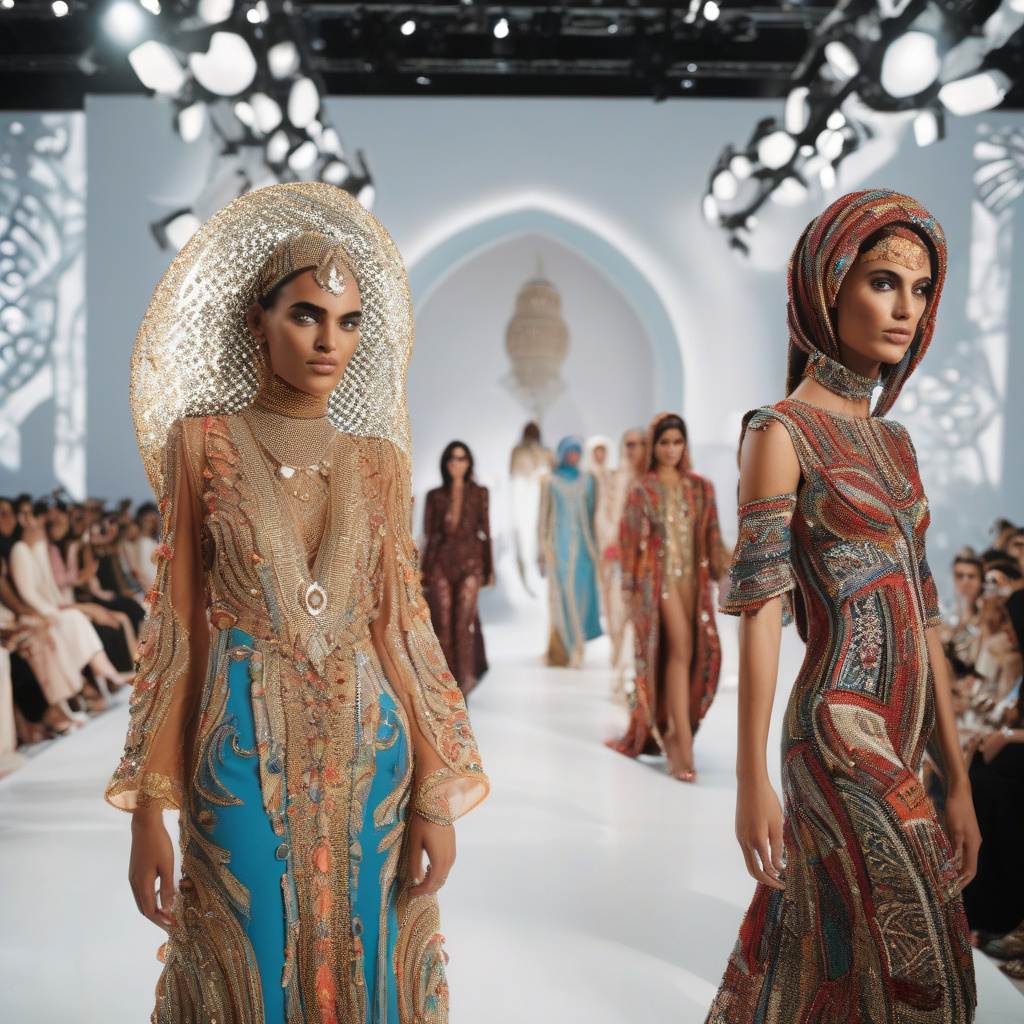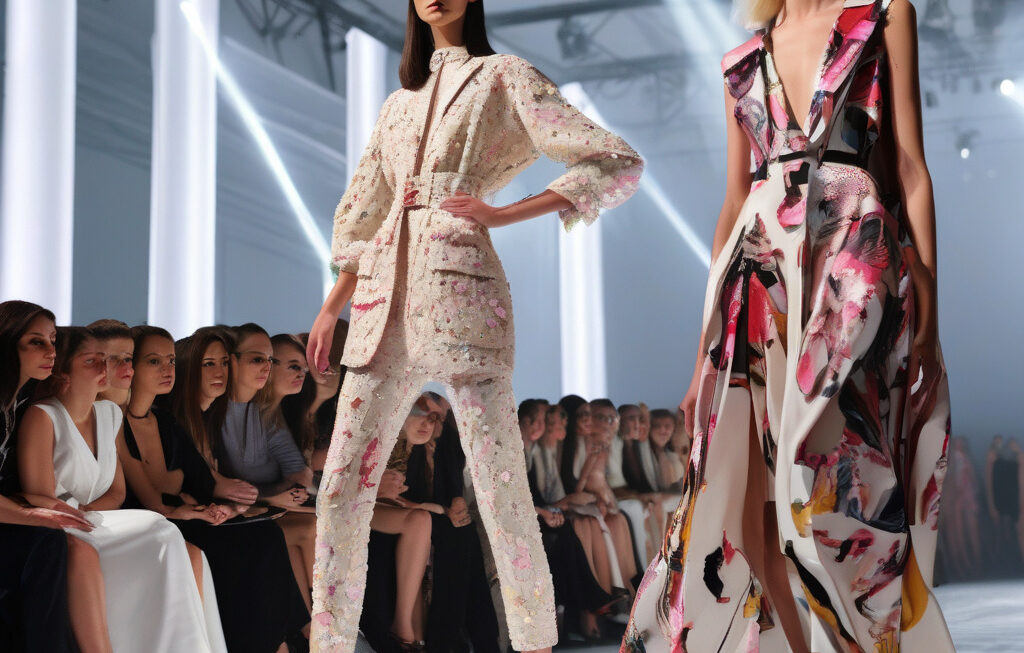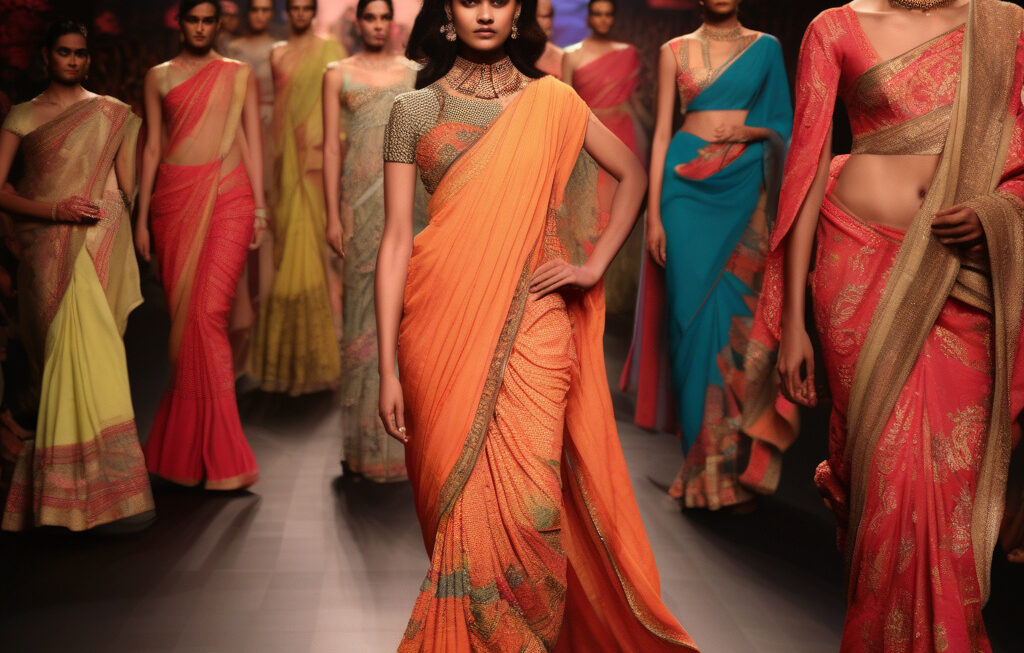Worldview: Dubai Fashion Week Casts a Wider Net
The world of fashion is a dynamic and ever-changing industry, with new trends, designers, and events constantly shaping the landscape. One such event that has been making waves in the industry is Dubai Fashion Week. Known for its opulence and extravagance, Dubai Fashion Week has long been a staple in the fashion calendar, attracting designers, models, and fashion enthusiasts from around the world. However, in recent years, the event has undergone a transformation, casting a wider net and embracing a more diverse range of voices and perspectives.
This shift towards inclusivity and diversity was evident in the most recent edition of Dubai Fashion Week, which featured a lineup of designers from a variety of backgrounds and cultures. From traditional Middle Eastern designs to cutting-edge Western fashion, the event showcased a wide range of styles and influences, reflecting the global nature of the fashion industry.
One of the key highlights of this year’s Dubai Fashion Week was the emphasis on sustainability and ethical fashion. With increasing awareness of the environmental impact of the fashion industry, many designers are now incorporating sustainable practices into their work. From using eco-friendly materials to promoting fair labor practices, sustainability was a common theme throughout the event, demonstrating a growing commitment to responsible fashion.
In addition to showcasing diverse and sustainable fashion, Dubai Fashion Week also served as a platform for emerging designers to showcase their talent. By providing a space for up-and-coming designers to present their collections to a global audience, the event plays a crucial role in nurturing the next generation of fashion talent and fostering creativity and innovation in the industry.
While Dubai Fashion Week continues to evolve and adapt to the changing landscape of the fashion industry, other global markets are also experiencing significant developments. Wella’s recent retreat from South Korea, for example, highlights the challenges that international brands face when entering new markets. By withdrawing from South Korea, Wella is refocusing its efforts on other regions where it can achieve greater success, demonstrating the importance of market research and strategic planning in the fashion business.
Meanwhile, Chinese retaliatory measures against US tariffs and the EU’s scrutiny of fast fashion giant Shein underscore the complex and interconnected nature of the global fashion market. As trade tensions and regulatory issues continue to impact the industry, fashion brands must navigate a complex web of geopolitical and economic factors to succeed in the global marketplace.
In conclusion, Dubai Fashion Week’s embrace of diversity, sustainability, and emerging talent reflects the broader trends shaping the fashion industry today. By casting a wider net and embracing a more inclusive and responsible approach to fashion, the event is setting a new standard for the industry as a whole. As global markets continue to evolve and adapt to changing circumstances, events like Dubai Fashion Week play a crucial role in driving innovation and creativity in the world of fashion.
Dubai Fashion Week, Global Markets, Wella, Shein, US tariffs, EU, Sustainability, Emerging Designers, Fashion Industry, Diversity, Inclusivity












